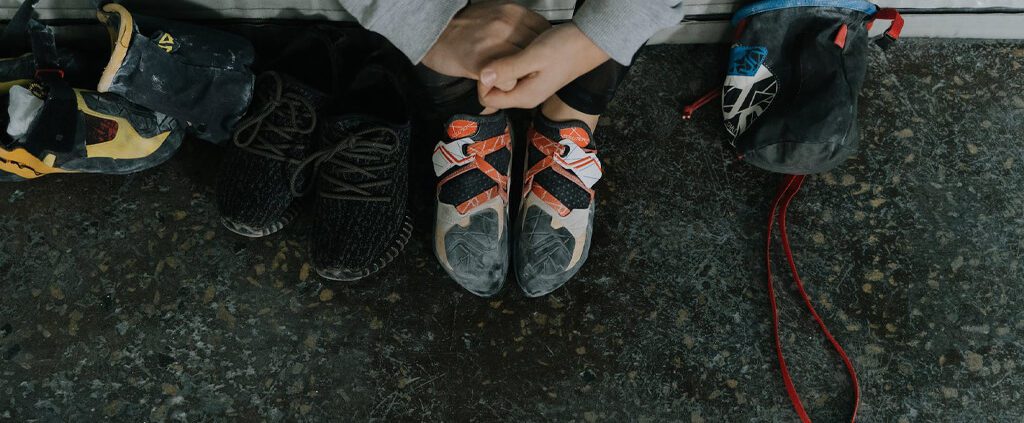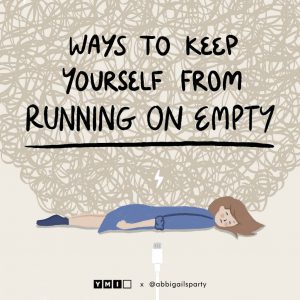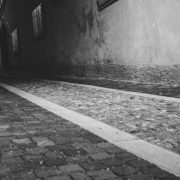How I Stepped off the “Busy” Treadmill
Where I come from, we no longer greet each other with the typical, “Hi! How are you?” Instead, it’s common to hear people start a conversation by going, “I’m super busy. Are you?”
Being busy is a badge of honour for many of us. Perhaps we think it means we’re efficient, productive, hardworking. Doing overtime is the norm, leaving on time is still frowned upon on some level, and taking time off can be unheard off.
I was no different. The responsibilities of one full-time job, two volunteer organisations, and three ministries had my calendar speckled with all the colours of the rainbow. Morning meetings gave way to lunch thinktanks, which then blended into afternoon consultations, followed by dinner counselling sessions—a pattern that would repeat itself week after week until I lost all sense of time.
Soon I found myself asking the husband in the mornings, “What day is today again?” My exhausted body began to affect my mental capacities, and the stress of work kept me from sleep at night. I started slipping up in the middle of the day and missing various appointments.
That was when I started to lie—it was my Band-Aid solution to stop taking on more jobs. “I have to work this weekend”, I tell the young couple who wanted counselling. “I’ve got to do overtime”, I’d text my church leader. “I have to be in church for an event”, I would reply to my boss when he needed me to come in on a Saturday.
Trapped in the wheels of busyness
I thought I’d outsmart the system by deceiving everyone. But by then the busyness had become an addiction. Now that I had free time on my hands, I had to fill them up. Drama after drama, novel after novel, the hours I secured for rest went into these pursuits that did not give me the rest I needed. Even though I attained free time, I squandered it away much like the younger, prodigal son in Jesus’s parable.
That Thanksgiving, my supervisor’s wife gifted me a watch. On the card, she wrote these words, “The heart of a man plans his way, but the Lord establishes his steps” (Proverbs 16:9). If she knew of my wrongdoings, she never showed it.
Reading those words cut deep. Steeped in the world’s culture of busyness, I deceived myself into believing that being busy was honourable. But God reminded me that He’s in charge, and He alone should determine my steps, my plans, my life. My busyness was futile if it was not in alignment with my Heavenly Father’s purpose. Those simple few words brought me back to reality—to truly live an abundant life, it meant a life grounded in Christ. His living Word convicted me to leave these earthly pursuits behind and pursue Him instead.
In His divine timing, I was offered a month-long teaching stint in the mountains of East Asia the following year, and from there I got to learn again what it meant to not be busy. The trek to the village school took three quarters of an hour each way. These long walks gave me much time to recalibrate and have leisurely conversations with the Lord, which was a most pleasant discipline I’d long forgotten.
Upon my return, I made the decision to work part-time instead of full-time. I had learnt from my teaching stint that I could survive with a lot less financially, and changing my work also allowed me to live a truly abundant, unbusy life. Since then, I’ve had to constantly choose to reject the “glory” of a busy life and to prioritise sitting at His feet, getting away from the noise of this world to hear His still, small voice.
“Busy” resting and spending time with my family
When people first discover we have three kids, no helper and multiple part-time jobs between us, they very quickly conclude, “You must be very busy.” While we certainly do have busy seasons, we guard family and home time fiercely, because we never want our children to ever think we were too busy for them.
In our home, we share a large family calendar where we all plot our dinner meetings, weekly memory verses, extended family birthdays and the like. But we always start by planning the “nothing slots”—to “do anything” (nothing). It could be lying on a picnic mat to stare at the clouds, or sitting on a beach watching the waves crash against the rocks on repeat, or starting a cycle with no destination in mind.
This was really hard to achieve at the start. I’d slip away to check on my phone for emails and itched to reply to my colleagues immediately. So we decided to set phone-free time zones as well—we’d allow ourselves to check messages only for a limited period of time before turning our phones off. While that took time and practice, what started out as anxious, restless resistance has given way to the feeling of liberation.
Recently, during a weeklong school holiday, our kids decided to set up a cardboard kingdom in the living room for the scheduled “nothing slot”. So, I made myself a cup of coffee and watched them.
The wise teacher of Ecclesiastes says in 4:6, “Better one handful of tranquillity than two handfuls with toil and chasing after the wind.”
Give your best in your work, yes, as a workman to be approved by God. But likewise, should we not take our rest seriously? For did not our Lord have the greater light to govern the day and the lesser light to govern the night? If God in His wisdom instituted this pattern for day and night—work and rest—we ought to also discipline ourselves to retreat, and intentionally include rest in our calendars.
While the rest of the world continues to define their worth by keeping busy and doing everything to climb the social ladder and store up earthly treasures, we, as believers, have the choice to rise above these pursuits and instead pursue Him who gives us every good thing.













Leave a Reply
Want to join the discussion?Feel free to contribute!